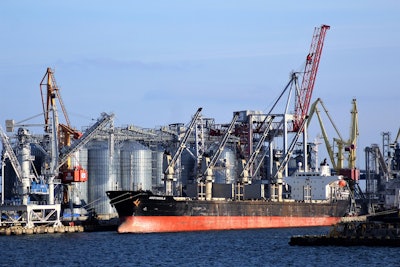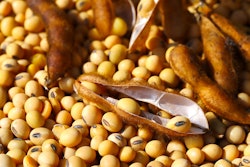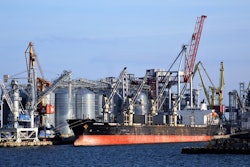
On Friday, Russia continued to attack Ukrainian port grain infrastructure for a fourth night after suspending its role in the Black Sea Grain Initiative on Monday.
It also practiced seizing ships in the Black Sea in an escalation of what Western leaders say is an attempt to wriggle out of sanctions by threatening a global food crisis, reported Reuters.
The direct attacks on Ukraine's grain, a key part of the global food chain, followed a vow by Ukraine to defy Russia's naval blockade on its grain export ports.
A report in the LA Times noted Agriculture Minister Mykola Solsky said on Wednesday a "considerable" amount of grain export infrastructure at Chornomorsk port in Ukraine's Odesa region had been damaged in Russian airstrike attacks on July 18 and 19. Odesa is considered the traditional center of Ukraine’s agricultural sector.
The airstrike also destroyed 60,000 tons of grain at the port that should have been loaded and shipped via the Black Sea Grain Initiative 60 days ago.
Ukraine’s Agriculture Ministry, citing experts, estimated that it would take a year to restore the facilities damaged Wednesday.
Wheat prices spike
According to reports, the attacks on grain export infrastructure and perceived threat to shipping drove up prices of benchmark Chicago wheat futures on Friday toward their biggest weekly gain since the February 2022 invasion, as traders worried about supply.
"Russia’s decision to suspend participation in the Black Sea Grain Initiative will worsen food insecurity and harm millions of vulnerable people around the world,” said Adam Hodge, a spokesperson for the U.S. National Security Council, in a statement.
Will Russia return to the grain initiative?
The Guardian reported Mykhailo Podolyak, an adviser to Ukrainian President Volodymyr Zelenskiy, said the attacks on Odesa are part of a concerted Russian effort to prevent Ukrainian grain reaching world markets.
The Black Sea grain deal, which has allowed Ukraine to export 33 million metric tons of corn, wheat and other grains despite Russian's invasion, was brokered by Türkiye and the UN in July 2022. On July 17, Russia said it was leaving the arrangement. Putin said Wednesday, however, that Russia could return to the deal if its conditions are met.
Andrey Sizov, head of SovEcon, a Black Sea agricultural market research firm focused on Russia and Ukraine, said the attacks signal Russia is serious about leaving the grain deal.
Turkish President Tayyip Erdogan, the grain initiative's sponsor alongside the UN, said he hoped planned talks with Putin could lead to the restoration of the arrangement.
Five European countries to ask for extended EU ban on Ukrainian grain
In related news, on July 19, Reuters reported five central European countries want a European Union ban on Ukrainian grains imports to be extended at least until the end of the year, with Poland threatening to keep borders closed if Brussels does not agree.
A makeshift export route via the Danube river near Romania now handles the main flow of food exports from Ukraine to world markets, reported Politico. That route, however, is extremely expensive and also risks putting additional stress on commodity prices and infrastructure in Romania and other nearby nations, which has angered farmers in those countries.
The countries fear with the collapse of the Black Sea grain deal, increased grain flows could again come into their countries from Ukraine.
In April, Bulgaria, Hungary, Poland, Romania and Slovakia cited concerns that grain from Ukraine meant to be exported to other countries had ended up in their local markets and was pushing down prices for local farmers.
In June, the European Commission extended import restrictions on Ukrainian grain for the five countries until September 15.
Solidarity with Ukraine is important but national grain markets must be protected, Slovakia's agriculture minister said.


















